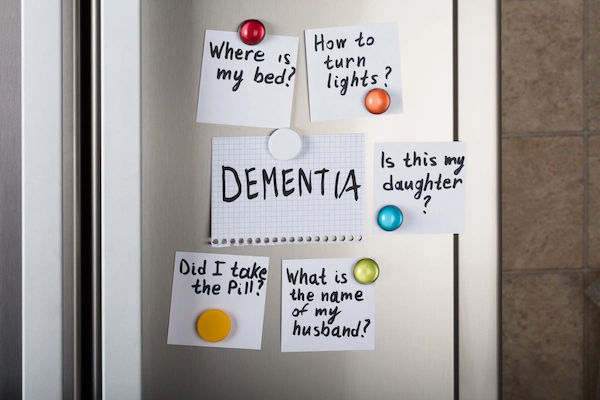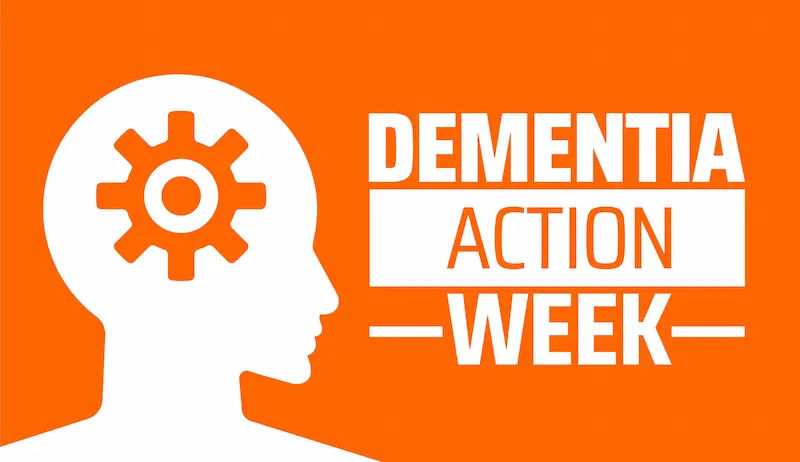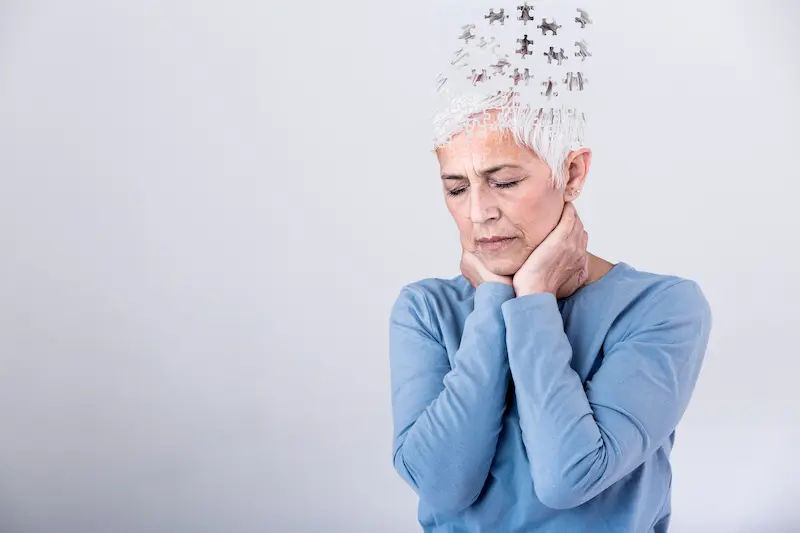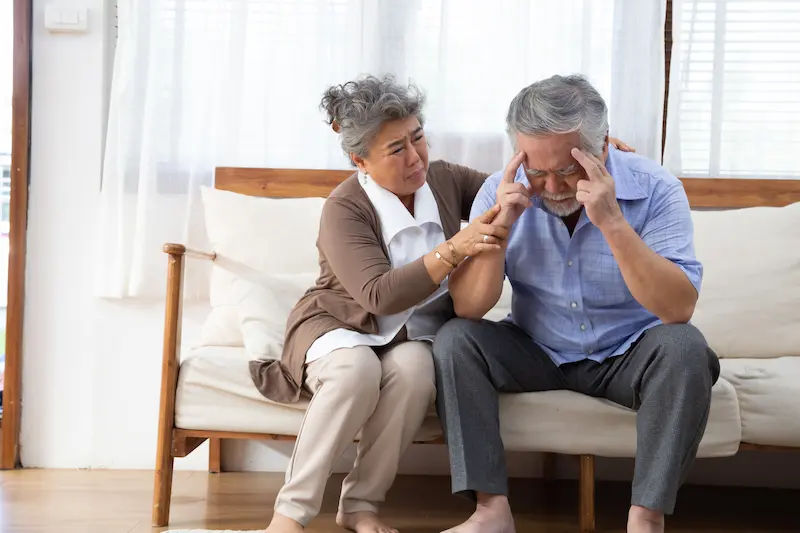Understanding Dementia
Know about dementia, what it is, different types explained, causes, risk, diagnosis, treatment and management of dementia and more.

Written by Dr. Dhankecha Mayank Dineshbhai
Reviewed by Dr. M L Ezhilarasan MBBS
Last updated on 13th Jan, 2026

Introduction
Dementia is a broad term that describes a group of symptoms affecting memory, thinking, and social abilities severely enough to interfere with daily life. It's not a single disease but a syndrome caused by various underlying conditions, most commonly Alzheimer's disease. This comprehensive guide will walk you through everything you need to know from recognising the early warning signs and understanding the different types to exploring treatment options and discovering crucial support for caregivers.
What is Dementia? More Than Just Memory Loss
When people hear "dementia," they often think of memory loss. While that is a hallmark symptom, dementia encompasses a much wider range of cognitive impairments. At its core, dementia is an umbrella term for a set of symptoms related to a decline in brain function. This decline is usually progressive and chronic, meaning it gets worse over time.
It's crucial to distinguish between occasional forgetfulness like misplacing your keys and the persistent, disruptive memory problems characteristic of dementia. The key differentiator is impact: dementia symptoms are severe enough to reduce a person's ability to perform everyday activities independently, such as driving, managing finances, or remembering appointments.
Understanding that dementia is a syndrome helps explain why there are different types and why each person's experience can be unique. The common thread is that the symptoms are caused by physical changes in the brain, which we will explore in more detail later.
Consult a Neurologist for Personalised Advice
Recognising the Signs: Early and Common Symptoms of Dementia
Early detection of dementia can lead to better management and planning. The symptoms often develop gradually and can be subtle at first.
Memory Loss That Disrupts Daily Life
The most common early sign of dementia, especially Alzheimer's, is forgetting recently learned information. This includes forgetting important dates or events, asking for the same information repeatedly, and increasingly needing to rely on memory aids or family members for things they used to handle on their own.
Challenges in Planning or Solving Problems
Some people may experience changes in their ability to develop and follow a plan or work with numbers. They might have trouble following a familiar recipe, keeping track of monthly bills, or concentrating on complex tasks that take much longer than they did before.
Confusion with Time or Place
People with dementia can lose track of dates, seasons, and the passage of time. They may have trouble understanding something if it is not happening immediately. Sometimes, they may forget where they are or how they got there, leading to disorientation and anxiety.
Changes in Mood and Personality
The symptoms of dementia can affect emotions and personality. Individuals can become confused, suspicious, depressed, fearful, or anxious. They may be easily upset at home, with friends, or outside of their comfort zone. A typically outgoing person may become withdrawn and passive.
Different Types of Dementia Explained
Several conditions can cause dementia, each with its own pattern of symptoms.
Alzheimer's Disease: The Most Common Form
Accounting for 60-80% of cases, Alzheimer's disease is characterised by the buildup of amyloid plaques and tau tangles
in the brain, which lead to the death of brain cells. The difference between dementia and Alzheimer's is that Alzheimer's is a specific disease that causes dementia symptoms.
Vascular Dementia: Linked to Blood Flow
Vascular dementia occurs after a stroke or from other conditions that block or reduce blood flow to the brain, depriving brain cells of vital oxygen and nutrients. Symptoms often overlap with Alzheimer's but may be more focused on problems with reasoning, planning, judgment, and memory.
Lewy Body Dementia: Involving Movement and Sleep
Lewy body dementia is associated with abnormal protein deposits (called Lewy bodies) in the brain. It causes symptoms
like those of Alzheimer's but often includes visual hallucinations, sleep disturbances, and movement issues similar to Parkinson's disease, such as rigidity and slowness.
Frontotemporal Dementia: Affecting Behaviour and Language
This less common type involves the breakdown of nerve cells in the brain's frontal and temporal lobes. Frontotemporal dementia often leads to changes in personality, behaviour, and language difficulty rather than memory loss in the early stages.
What Causes Dementia and Who is at Risk?
It is caused by the below reason:
The Role of Brain Cell Damage
Dementia is caused by damage to or loss of nerve cells (neurons) and their connections in the brain. Depending on the
area of the brain affected, this damage translates into different symptoms. For example, damage to the hippocampus affects memory, leading to Alzheimer's symptoms.
Key Risk Factors for Developing Dementia
Non-Modifiable Risk Factors (Age, Genetics, Family History)
The greatest known risk factor is advancing age, with most cases affecting those over 65. Genetics and family history of dementia can also play a role, particularly in early-onset forms.
Modifiable Risk Factors (Heart Health, Diet, Exercise)
Research shows that a healthy heart is linked to a healthy brain. Factors like hypertension, smoking, diabetes, obesity, depression, and physical inactivity can increase risk. Addressing these through lifestyle changes is a key strategy for dementia prevention.
How is Dementia Diagnosed?
There is no single test to determine if someone has dementia. The process of diagnosing dementia typically involves:
- Medical History: A detailed review of past and current health.
- Physical and Neurological Exams: To rule out other causes of symptoms.
- Cognitive and Neuropsychological Tests: To assess memory, problem-solving, and language skills.
- Brain Scans: CT, MRI, or PET scans can identify strokes, tumors, or other structural changes.
If you or a loved one is experiencing persistent memory problems or other cognitive changes, it's crucial to seek a professional evaluation. You can consult a neurologist online with Apollo24|7 for an initial assessment and guidance on the next steps.
Treatment and Management: Living Well with Dementia
While most causes of dementia are progressive and currently have no cure, treatments can help manage symptoms.
Medications for Dementia Symptoms
Certain drugs, like cholinesterase inhibitors (e.g., donepezil) and memantine, can temporarily improve or stabilise memory and thinking skills in some people. Medications are also available to manage secondary symptoms like
depression, sleep disturbances, or agitation.
Non-Drug Therapies and Lifestyle Approaches
Occupational therapy can help people develop strategies to manage daily activities. Creating a structured routine, ensuring good nutrition, and engaging in mentally and socially stimulating activities are all vital components of dementia care.
Supporting a Loved One: A Guide for Caregivers
Caring for someone with dementia can be challenging but also deeply rewarding.
Communication Strategies
Use simple words and sentences. Speak slowly and reassuringly. Maintain eye contact and use nonverbal cues. Avoid arguing or trying to reason; instead, redirect and distract.
Creating a Safe and Supportive Environment
Reduce clutter and noise to prevent overwhelm. Install safety features like grab bars and automatic shut-off switches. Establish a predictable routine to reduce anxiety.
The Importance of Caregiver Support
Caregiver burnout is real. It is essential to seek dementia caregiver support, whether through local groups, online forums, or respite care services. Taking care of your own health is not selfish—it's necessary to provide the best care.
Can Dementia Be Prevented?
While there's no guaranteed way to prevent all types of dementia, a healthy lifestyle can significantly reduce your risk.
Promoting Brain Health Through Lifestyle
It includes:
- Stay Physically Active: Aim for at least 30 minutes of moderate exercise most days.
- Eat a Balanced Diet: Diets like the Mediterranean diet, rich in fruits, vegetables, whole grains, and healthy fats, are
linked to better brain health. - Keep Your Mind Active: Read, learn new skills, solve puzzles, and engage in social activities.
- Manage Health Numbers: Keep your blood pressure, cholesterol, and blood sugar within recommended ranges. Apollo24|7 offers convenient home collection for tests like HbA1c and lipid profiles to help you monitor these key health indicators easily.
Conclusion
Understanding dementia is the first step toward dispelling fear and stigma. It empowers individuals and families to seek timely help, explore dementia treatment options, and plan for the future. While the journey is undeniably difficult, a diagnosis does not define a person. With the right support, management strategies, and a focus on quality of life, individuals with dementia can continue to experience joy and connection.
Consult a Neurologist for Personalised Advice
Consult a Neurologist for Personalised Advice

Dr. Aditendraditya Singh Bhati
Neurosurgeon
21 Years • MBBS(2004), DNB Neurosurgery(2014); MNAMS; Fellow Skull Base Endoscopy (Italy), Fellow Extended Skull Base ( Weill Cornell, USA), Fellow ZAP-X Radiosurgery. Member of American Association of Neurological Surgeons
Delhi
Apollo Hospitals Indraprastha, Delhi
(100+ Patients)

Dr. Ganeshgouda Majigoudra
Neurologist
10 Years • MBBS, MD ( GENERAL MEDICINE) DM (NEUROLOGY)
Bengaluru
Apollo Clinic, JP nagar, Bengaluru

Dr. E Prabhakar Sastry
General Physician/ Internal Medicine Specialist
40 Years • MD(Internal Medicine)
Manikonda Jagir
Apollo Clinic, Manikonda, Manikonda Jagir
(150+ Patients)
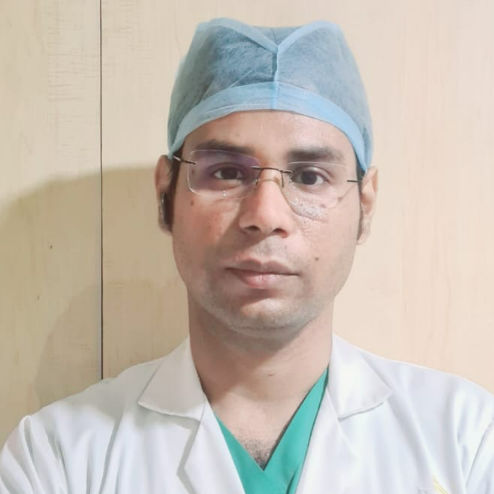
Dr Debnath Dwaipayan
Neurosurgeon
9 Years • MBBS, MS(Gen. Surgery), DrNB (Neurosurgery)
Delhi
Apollo Hospitals Indraprastha, Delhi

Dr. Anusha D
Neurologist
16 Years • MBBS, MD, DM (Neuro), DNB (Neuro)
Chennai
Apollo Speciality Hospitals OMR, Chennai
(125+ Patients)
Consult a Neurologist for Personalised Advice

Dr. Aditendraditya Singh Bhati
Neurosurgeon
21 Years • MBBS(2004), DNB Neurosurgery(2014); MNAMS; Fellow Skull Base Endoscopy (Italy), Fellow Extended Skull Base ( Weill Cornell, USA), Fellow ZAP-X Radiosurgery. Member of American Association of Neurological Surgeons
Delhi
Apollo Hospitals Indraprastha, Delhi
(100+ Patients)

Dr. Ganeshgouda Majigoudra
Neurologist
10 Years • MBBS, MD ( GENERAL MEDICINE) DM (NEUROLOGY)
Bengaluru
Apollo Clinic, JP nagar, Bengaluru

Dr. E Prabhakar Sastry
General Physician/ Internal Medicine Specialist
40 Years • MD(Internal Medicine)
Manikonda Jagir
Apollo Clinic, Manikonda, Manikonda Jagir
(150+ Patients)

Dr Debnath Dwaipayan
Neurosurgeon
9 Years • MBBS, MS(Gen. Surgery), DrNB (Neurosurgery)
Delhi
Apollo Hospitals Indraprastha, Delhi

Dr. Anusha D
Neurologist
16 Years • MBBS, MD, DM (Neuro), DNB (Neuro)
Chennai
Apollo Speciality Hospitals OMR, Chennai
(125+ Patients)
More articles from Dementia
Frequently Asked Questions
1. What is the difference between dementia and Alzheimer's?
Dementia is an umbrella term for symptoms affecting memory and cognitive function. Alzheimer's disease is a specific and the most common brain disease that causes dementia symptoms.
2. Is dementia hereditary?
In most cases, dementia is not directly inherited. However, having a family history of dementia does increase your risk. Certain rare, early-onset forms of Alzheimer's have a stronger genetic link.
3. Can young people get dementia?
While rare, early-onset dementia can affect people in their 30s, 40s, and 50s. When symptoms appear before age 65, it is classified as early-onset.
4. How long can a person live with dementia?
The progression of dementia varies greatly by type and individual health. On average, a person lives 4 to 8 years after diagnosis, but can live as long as 20 years.
5. Are there any new treatments for dementia?
Research is ongoing. Recent years have seen the development of new medications that target the underlying biology of Alzheimer's disease, aiming to slow progression. These are most effective in the early stages, highlighting the importance of early diagnosis.
